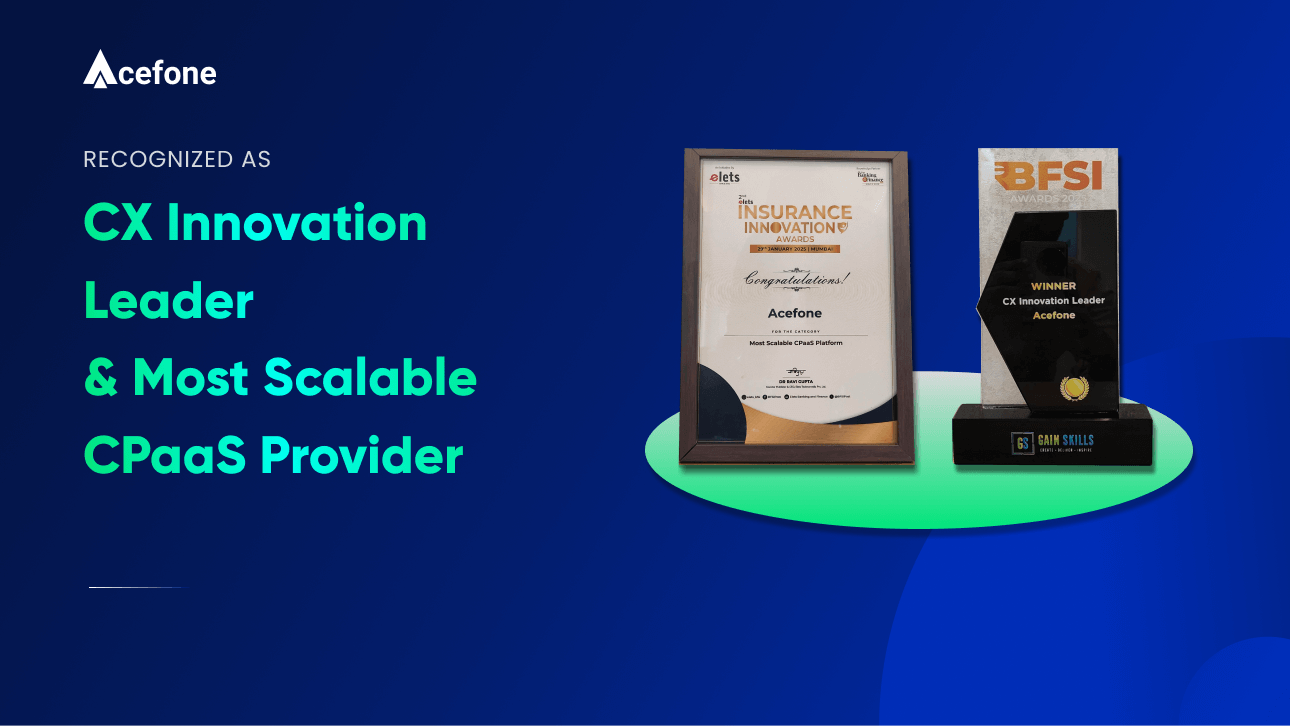A stellar customer experience constitutes customer success and also encourages customer loyalty. Very soon, a customer’s experience with a brand will be a company’s fundamental differentiator, even outweighing price and the product. It is no longer be enough to have just a good product at a good price, and smart businesses are taking notes. Now, companies must provide exceptional customer experience if they want to say competitive.
The technical development after the Fourth Industrial Revolution- such as Artificial Intelligence, Internet of things and cloud computing are leveraging the ease in customer experience by providing better customer insights about their expectations and perceptions. This customer-centric approach has become possible because of multiple tools and solutions, one of the crucial tools being the IVR.
In this blog, we will find answers to 7 most frequently asked questions about IVR systems asked by people who are interested in implementing IVRS for their businesses.
- What is IVR?
- What do we need to implement the IVR System?
- How does it work?
- Is it even important to implement one?
- For what type of industries is the IVR solution mandatory?
- How long does it take to implement?
- Is there any payment process to activate IVR services?
What is IVR?
IVR stands for Interactive Voice Response and is an automated telephony system that communicates with customers, aggregates information and transmits calls to the appropriate recipients. An IVR system accepts a combination of voice telephone input as well as touch-tone keypad selection and provides the suitable responses through various mediums like voice, fax, callback, email or SMS.
For example, all the recordings you hear while dialing a customer care number of a bank or a restaurant are a part of a well implemented IVR solution. It then asks you to either dial 1 or 2 for sales or support or maybe for a language option. These options are known as Dual-Tone-Multi-Frequency (DTMF) options using which the customers navigate to the relevant agent/recipient.
What do we need to implement the IVR System?
It might sound a technical jibber jabber, but IVR system is the most hassle-free tool ever developed to provide a smoother customer experience. There is absolutely no need of a physical setup to install the system.
Using IVR services, you will be able to implement your desired script as a recording on the cloud or a server, so that as soon as a customer calls, the calls first hit the IVR Recording on the cloud and then using the call forwarding feature, is forwarded to a number convenient to you. This number can be a mobile number or even a landline number.
This implies that the calls can be picked up traditionally using mobile phones or landlines with the contemporary IVR system in place. So beware of all the vendors who charge “setup fee” as a part of their commercials. It is invalid because there is no setup needed to implement IVR.
How does it work?
An IVR is basically a technology that lets a human interact with an electronic system using voice and DTMF inputs via keypad. The beauty of IVR technology lies in the ease of its functioning. No matter where you are, it works exactly the same even if you’re operating from different geographical locations providing a sophisticated standardization in operations.
To describe the flow, any call made to a number first hits the server where the greeting message is played; something like, “Welcome to XYZ Ltd” followed by an IVR which gives an option of pressing 1 for maybe English and 2 for Hindi. Then, based on the option as selected by the caller, the call lands to a relevant agent.
The answer to how does an IVR work lies in the question that what do you wish to accomplish with the IVR system. It can be an Auto-attendant used to greet the caller or an Auto-receptionist which responds with a pre-recorded message and transfers the call to the concerned department based on the DTMF inputs of the caller.
Why is it important to implement IVR?
The first, foremost and very basic answer to this question would be – personalised experience! Personalisation can be in various forms, simplest of it being incorporation of your company’s name in the greeting message itself. It enables you to gather information about the callers and their preferences.
The IVR system also automates the whole process of welcoming and greeting an agent, sometimes even solving the query, thereby reducing the need of human intervention. It also transfers the call to the right and relevant agent without any ambiguity since there is technology involved.
IVR has excellent features like segregating and differentiating calls based on different criteria like, language, category of query and will route these calls to the agent who is most qualified to handle them. This way, you will never miss an important call. Another noteworthy feature that IVR exhibits is the ability to handle multiple calls and heavy call flow.
Unlike conventional telephony systems where you can only handle one call at a time, IVR system lets you handle multiple calls by placing them in a queue or transferring them to the right agent to answer. This is an outstanding feature and most crucial reason to switch to cloud telephony.
Even in these unprecedented times of corona virus pandemic, IVR campaigns have helped businesses in ensuring business continuity and keeping customers informed about their functioning.
For what type of industries is the IVR mandatory?
All industries who care for a smooth experience for their customers can go ahead with IVR implementation. It is not restricted to a few industries. Big, small, old or new, every type of industry can benefit using IVR technology.
Small businesses who want to portray a professional and sophisticated image should definitely consider this option. Customers would get that feel of dialing in an organization having multiple agents and departments even if it is a start-up with minimal staff.
How long does it take to implement?
The time to configure an IVRS in place totally depends on the service provider or the vendor you’re subscribing to. Usually, it takes a couple of hours and you’re good to go. Setting up a cloud telephony solution, such as the IVR is the most simple and smooth process. All you need is a brilliant, personalized script in place and a few forwarding numbers of your agents to start this. Having all this in place, you’re all set to amplify your customer experience without any hefty investments on physical hardware or human resource.
Is there any payment process to activate IVR services?
The IVR service can be started by paying online through various methods like bank transfers and Paytm. To enjoy best-in-class services, one can get in touch with the leading IVR service provider like Acefone. You can enjoy the services without any geographical constraint by logging into a user-friendly dashboard. The process to do so is smooth as well as quick. Account gets activated within a couple of hours of making the payment.
IVR is therefore mandatory as well as appropriate for any 21st century business who cares about its customer experience. IVRS are life savers for the customers who hate waiting in long queues or repeating his/her issues. In times where staying ahead of the competition is a must, IVRS increase both business efficiency and customer satisfaction while reducing the overall business cost.
Contact to know more about IVR.














